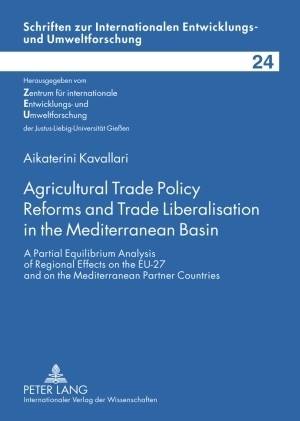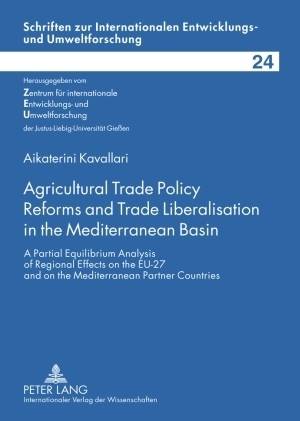
- Afhalen na 1 uur in een winkel met voorraad
- Gratis thuislevering in België vanaf € 30
- Ruim aanbod met 7 miljoen producten
- Afhalen na 1 uur in een winkel met voorraad
- Gratis thuislevering in België vanaf € 30
- Ruim aanbod met 7 miljoen producten
Zoeken
Agricultural Trade Policy Reforms and Trade Liberalisation in the Mediterranean Basin; A Partial Equilibrium Analysis of Regional Effects on the EU-27 and on the Mediterranean Partner Countries
A Partial Equilibrium Analysis of Regional Effects on the EU-27 and on the Mediterranean Partner Countries
Aikaterini Kavallari
€ 89,95
+ 179 punten
Omschrijving
Bilateral and multilateral trade agreements have been gaining attention and relevance in recent years. For the countries around the Mediterranean basin the most important regional trade agreements involved are the Euro-Med Agreements, which influence their trade flows as they aim to promote regional integration. Based on the theory of applied welfare economics, this study analyses empirically the impacts of different policy scenarios on the agricultural sector of Mediterranean countries by using an extended and modified version of the trade policy model AGRISIM. The results show that trade liberalisation, either multilateral or bilateral, would be beneficial for the Mediterranean agricultural markets due to positive welfare effects and should be considered by policy makers.
Specificaties
Betrokkenen
- Auteur(s):
- Uitgeverij:
Inhoud
- Aantal bladzijden:
- 238
- Taal:
- Engels
- Reeks:
- Reeksnummer:
- nr. 24
Eigenschappen
- Productcode (EAN):
- 9783631592038
- Verschijningsdatum:
- 27/04/2009
- Uitvoering:
- Hardcover
- Formaat:
- Ongenaaid / garenloos gebonden
- Afmetingen:
- 148 mm x 210 mm
- Gewicht:
- 462 g

Alleen bij Standaard Boekhandel
+ 179 punten op je klantenkaart van Standaard Boekhandel
Beoordelingen
We publiceren alleen reviews die voldoen aan de voorwaarden voor reviews. Bekijk onze voorwaarden voor reviews.








